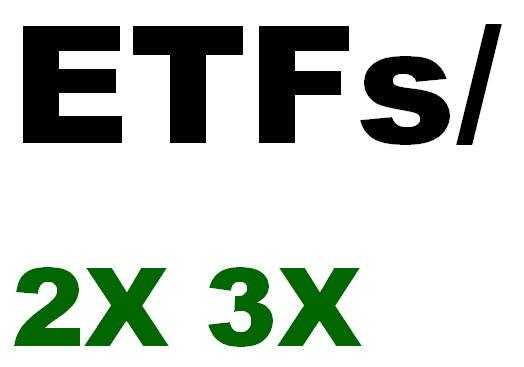MarketsMuse editor note: For those not familiar with leveraged ETFs, before reading this special column, you’ll want to get up to speed with Investopedia’s defintion, otherwise, ETF industry experts and observers have new ammunition in which to debate the pros and cons of leveraged ETF products. If you find that your debate with peers becomes too spirited, you might change the channel and duel about the merits of shale oil fracking..
Leveraged and inverse ETFs, which some industry experts have labeled “Weapons of Financial Destruction” aka “WFDs” have come under heavy criticism as potentially exacerbating volatility in financial markets, are not the danger that critics have made them out to be, concludes a preliminary study from U.S. Federal Reserve researchers.
“..Leveraged and inverse exchange-traded funds (ETFs) have been heavily criticized for exacerbating volatility in financial markets because it is thought that they mechanically rebalance their portfolios in the same direction as contemporaneous returns. We argue that these criticisms are likely exaggerated because they ignore the effects of capital flows on ETF rebalancing demand. Empirically, we find that capital flows substantially reduce the need for ETFs to rebalance when returns are large in magnitude and, therefore, mitigate the potential for these products to amplify volatility. We also show theoretically that flows can completely eliminate ETF rebalancing in the limit.” US Federal Reserve study, November 2014
Above preamble is from a recently-published US Federal Reserve-sponsored study, “Are concerns about Leveraged ETFs Overblown?” by academics Ivan Ivanov and Stephen Lenkey. First released November 19 2014, the white paper received no financial industry media coverage until December 30, when the WSJ included a 2 paragraph mention courtesy of reporter Pedro Nicolaci da Costa, whose post received only 1 reader comment, “No doubt lemming investors are comforted by this announcement.” Since last week, multiple media outlets have since incorporated a blurb in their respective online platforms. On Jan 2, ValueWalk.com distilled the Fed’s white paper with great detail and insight. Below are the extracts from ValueWalk analysis:
In their white paper, “Are Concerns About Leveraged ETFs Overblown,” Fed researchers Ivan T. Ivanov and Stephen L. Lenkey make the case that concerns in this regard are exaggerated. To the contrary, the author’s assert that “capital flows considerably reduce ETF rebalancing demand and, therefore, mitigate the potential for ETFs to amplify volatility.”
Concerns that leveraged exchange-traded funds could fuel undue market volatility are misplaced, because they ignore the offsetting effects from capital flows as funds adjust to the benchmarks they track, according to two Federal Reserve Board economists.
However, the latest Fed research finds that capital flows reduce the need for ETFs to buy and sell assets to match movements in benchmark indexes. They “therefore mitigate the potential for ETFs to amplify volatility” in financial markets, the authors say.
Initial opposition to the leveraged ETFs was strong. In fact, as The Wall Street Journal’s Pedro Nicolaci Da Costa notes, both the Securities and Exchange Commission and the Fed had previously issued warnings regarding leveraged ETFs. In fact, at one point the SEC had issued a moratorium on approving exemption requests for new leveraged and inverse ETFs, typically a serious sign of trouble from regulators. The Securities and Exchange Commission specifically cited worries about the use of derivatives products in mutual funds in a 2010 review. It has since issued guidance for buy-and-hold investors warning of “extra risks” from the products.
The primary point of concern focused on what the report said was a common “perception” that the process of re-balancing leveraged and inverse ETF portfolios exacerbated performance. If the ETF was experiencing positive returns, the conventional thinking was leveraged ETFs distorted prices higher. More concerning to market observers was the notion that if the ETF experienced negative price movement, leverage would then amplify market moves lower in price.
It is at this point that Fed researchers Lenkey and Ivanov disagree. “Such reasoning is incomplete because it overlooks the effects of capital flows,” they note in their white paper, characterizing concerns regarding these products are “likely exaggerated.”
Marketsmuse encourages readers to dig deeper into the ValueWalk story by clicking here
The Fed-sponsored study is here:

